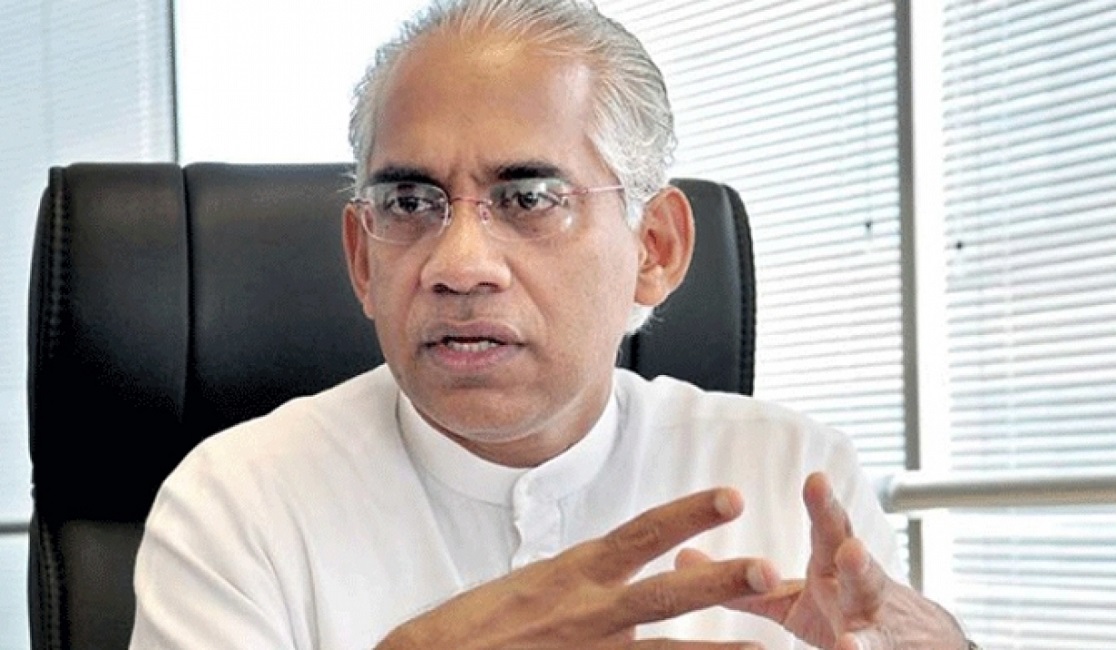"Lots of improper things had happened in the stock market during 2011 - 2013 and these were investigated by the then CBSL Governor, Dr Indrajith Coomaraswamy and the Monetary Board took a decision to call for a Forensic audit and there were five major reports on the Forensic audit in the country," he noted.
Wickramaratna made these observations at a press briefing held at the Opposition Leader's Office in Colombo yesterday (17) and pointed out that one such report basically deals with the investment by the Employees Provident Fund (EPF) and all the problems that involved the EPF funds.
The former State Minister of Finance quoting page 259 of the Forensic report titled, “Final Report The Monetary Board of Sri Lankan by the KPMG, described how current State Minister for Money and Capital Markets Ajith Nivard Cabral dodged an inquiry on the issue of EPF investment in the stock market and the consequent manipulations of the market during his tenure as the Governor of the Central Bank.
He noted that people in responsible positions of the caliber of the CBSL Governor Ajith Nivard Cabral at least should have the decency to go in for these things and answer the questions that are raised but has been avoided by him as per the Forensic report by the KPMG.
"Majority of the investment done by EPF were during the period 2009 and 2013 during the period Mr. Ajith Nivard Cabrala was the Governor of the CBSL and the Chairperson of the Monetary Board MB. We have sent a written question to Mr Cabraal through CBSL on 03rd October 2019 and have requested for a face to face meeting. There were altogether 5 occasions of communications that took place between the then Governor Dr. Indrajith Coomaraswamy and Mr Cabraal. We do not have the benefit of his response. CBSL should obtain his response to formulate a holistic view on these transactions."
Wickramaratna said that the report revealed in view of the specific investments in listed shares that resulted in losses to the EPF, the involvement of the Monetary Board and the Governor was noted in the decision – making process.
The report also noted that despite the ban on investing in the unlisted companies and the banks on which the CBSL has regulatory powers, there have been an investment of Rs 4,475 million in the unlisted companies in addition to investment of Rs 31,158.75 million in five banks from the EPF money to which approval of Cabraal had been sought through an internal note.
The KPMG investigation report concludes that it was identified that the Audit report for 1998 and 1999 were not available with the EPF dept and the copies were not retrievable even from the AG’s office which is a new phenomenon to be seen.
The losses incurred by EPF in equity investments have been specifically highlighted for listed and unlisted investments from the year 2011 to 2015. The EPF had invested a sum of Rs 500 million in shares of the Sri Lankan Airline in July, 2010 but no revenue yielded since the investment. The EPF had invested millions of rupees in the unlisted companies in the areas of power generations, Airlines, Hotel sector, Finance Companies and the EPF had not received any income in the form of dividends from the investments since the date of investments till 2016.
"All in all, the EPF has incurred huge losses amounting to millions of rupees by way of improper investments in the listed and unlisted companies. Return on EPF investments could be perceived as almost zero percent between the year 2008 and 2014 for which the authorities in the CBSL should be held responsible. Non compliance of the rules and regulations are the major loophole in those transactions. The report talks of the involvement of the Governor of the Central Bank or the Monetary Board," he said.
The SJP Parliamentarian said that this is not just the history of EPF, a lesson for the present and the future, unfortunately which is being repeated once again presently.
"There has been a big outflow of foreign investment from the stock exchange. In terms of rupee value Rs 51 billion outflows was registered in the year 2020 which was 5 percent of the total investment. In 2019 as a part of turn over the foreign investment was over 20 percent. This shows the gravity of the outflow of the foreign investment in the capital market under this government which is boasting of developing the country without foreign assistance," he said.
"With the replacement of the foreign investors with the local investment there seems to be a pattern like what happened in 2011 and up to 2014 when there was corruption in the stock market. People in high offices were involved in the racket according to the forensic report. They had an opportunity to go before auditors and make their case, but they did not make their case due to reasons best known to them, " he said.

Leave your comments
Login to post a comment
Post comment as a guest